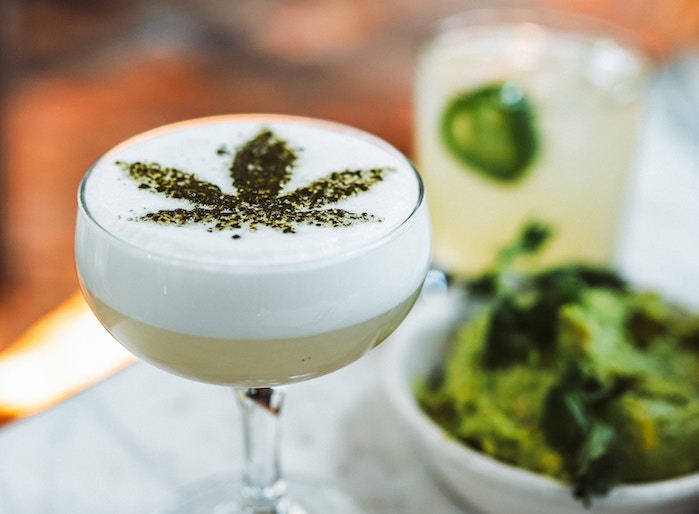The Wine & Spirits Wholesalers of America (WSWA) recently set precedent by announcing support for states’ cannabis rights. The national trade association, representing the wholesale tier in wine and spirits, became the first and only alcohol association to take this position.
To learn more about the WSWA’s reasoning, we recently caught up with Dawson Hobbs, SVP of government affairs for WSWA.
Kyle Swartz: Why make this announcement?
Dawson Hobbs: We think that the right place for this discussion is at the state level. The federal government should allow states to legalize cannabis markets if they choose, and continue those markets that already exist.
KS: How should states regulate those markets?
DH: We think it should be similar to how the law operates regarding alcohol. The labels should always make it clear to consumers exactly what they’re buying — including that product’s potency. And the same way that all alcohol labels must be approved by the government, a similar thing can be done in the cannabis space. Consumers must know that what they’re buying is what the label says it is.
KS: Do you believe that legal cannabis is competition for alcohol?
DH: We’ve looked at the data and it’s still inconclusive whether legal cannabis adds or takes away from alcohol sales. What we don’t want is a cannabis market that’s loosely regulated, because that causes issues in communities with a cannabis presence, and that’s bad for business.
KS: Proper regulation seems to be the WSWA’s focus.
DH: The WSWA is concerned about making sure that states that legalize cannabis have a safe and effective marketplace. There should be limits on underage access. There should be limits for consumers using the product and then getting on the road. And there should be an effective system put in place for retailers and distributors.
KS: What is the WSWA’s stance on cannabis DUIs?
DH: We’ve been working on this issue ourselves now for several years. We’ve got a study going about impaired driving on cannabis. And we provide funding for increasing the number of Drug Recognition Experts (DRE).
It took some time to settle on the standard alcohol impairment levels for driving. It will take some time with cannabis as well. Though that doesn’t mean we should do nothing in the meantime. Again, we’re funding DRE programs to educate more police officers.
KS: What is the future for cannabis under President Trump and Attorney General Sessions?
DH: We think the federal action towards cannabis needs to come from the U.S. Congress. Those legislators need to clarify the law so that states can have a path towards appropriate cannabis regulation. In the meantime, the Trump administration is in a spot where it can choose to ignore federal laws on cannabis — or enforce against the will of the people.
KS: What is your take on products that combine cannabis and alcohol?
DH: Combining THC and alcohol remains illegal. But if the law were ever to allow such a product, it needs to be clear exactly what’s in that product, and what effects it will have on the consumer.
KS: What existing cannabis regulations impress the WSWA?
DH: No state is perfect, but they’re moving towards much better labeling and testing laws. Those are steps in the right direction.
Our big thing is to help states not learn lessons the hard way. This country already has 85 years of alcohol regulations. Let’s learn what we can from that and apply it to legal cannabis.
If states legalize without proper regulations, the product has potential for misuse, and underage use. We don’t want to see that happen. And regulations don’t end when a consumer turns 21. There’s a host of regulations about businesses, licenses, violations, tastings, liabilities, safety and more. All of these have already been developed by the alcohol industry. They should all be looked at by the cannabis industry.
There are a large number of people in the pro-cannabis camp who want to set regulations like alcohol. We agree with that.
We’re not telling any state that they should or shouldn’t legalize cannabis. We’re just saying: here’s the safe and effective pathway to do it.
Kyle Swartz is editor of Cannabis Regulator. Reach him at kswartz@epgmediallc.com or on Twitter @kswartzz. Read his recent piece Does Trump Support Legal Cannabis?










